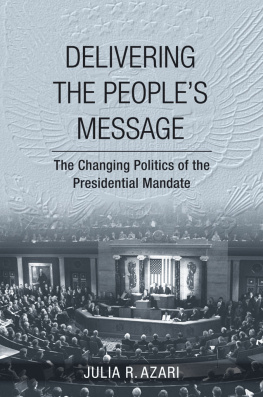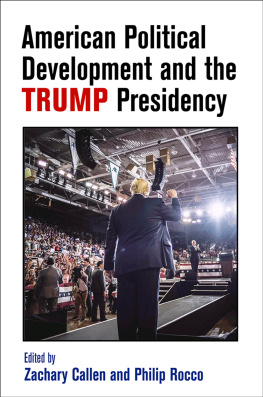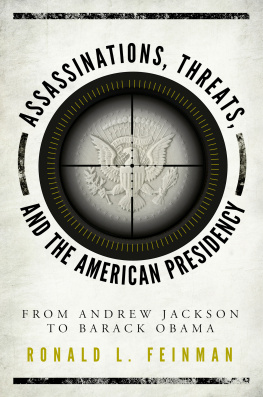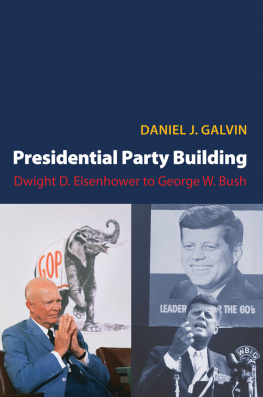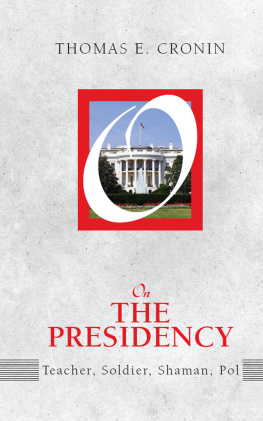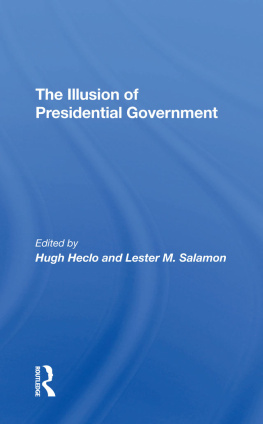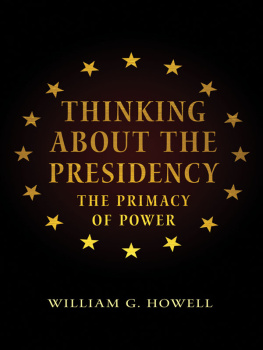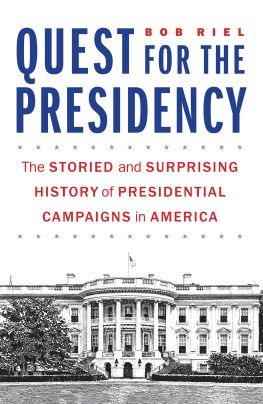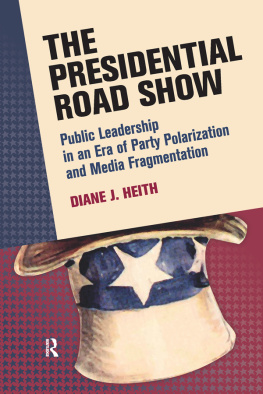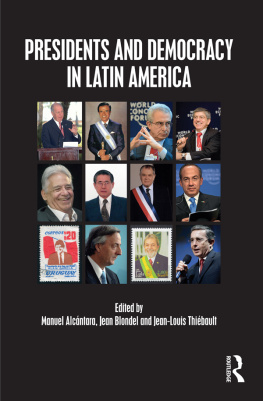ACKNOWLEDGMENTS
In the course of researching, writing, and rewriting this book, I have been fortunate to have never been without the company of wonderful friends, family, and colleagues; likewise, I have never been without the support of terrific institutions that have helped to bring this project to fruition. I ask for the readers indulgence as I enumerate a long list of those whose support was crucial to the realization of this book. All shortcomings and errors are, of course, mine alone.
I am immensely grateful to Michael McGandy and Sarah E. M. Grossman of Cornell University Press, and to the anonymous readers who provided excellent feedback and suggestions. I am also grateful to Erin Thomas, Bob Mate, Ben Stewart, and Dave Ruigh for excellent research assistance, and to Supurna Banerjee for excellent copyediting. I also owe a debt of gratitude to the talented and patient employees of the Carter, Johnson, FDR, Reagan, Eisenhower, and Nixon presidential libraries for their assistance in my archival research.
I have been fortunate to have financial and academic support from several generous institutions. I am grateful to Marquette University for a generous subvention, which aided in the publication of this book. The Center for the Study of American Politics at Yale, the Marquette University Office for Research and Sponsored Programs, and the Harry Middleton Foundation all provided funding for the research on which this book is based. More generally, I owe a debt of gratitude to the Department of Political Science at Yale and the American Politics Workshop at the Institute for Social and Policy Studies for the training and tough love that they provided during my years as a graduate student. My gratitude extends to the support staff as well as the faculty.
This project would not have come to fruition without the guidance and expertise of David Mayhew, Stephen Skowronek, and Jacob Hacker, faculty members at Yale whose mentorship was tough, encouraging, and deeply connected to the world of ideas. I also remain grateful to other mentors there, including Greg Huber and Susan Stokes, who also provided guidance during this project. Reaching back even further, my path to becoming a political scientist was initially shaped and encouraged by my undergraduate mentors at the University of Illinois: William Bernhard, Jeff Bosworth, Brian Gaines, and Carol Leff. My own time as an assistant professor has made me all the more appreciative of the hours they spent with me, providing guidance about formulating research questions, gathering and analyzing data, and, eventually, choosing a graduate program.
The Department of Political Science at Marquette University has been a source of intellectual and personal support during my six years in the department. My gratitude extends to our entire department, but Lowell Barrington, McGee Young, Amber Wichowsky, Paul Nolette, Risa Brooks, Duane Swank, Ryan Hanley, Karen Hoffman, Jeff Drope, and Barrett McCormick have been especially helpful in offering suggestions, reading drafts, and freely giving good advice. Their kindness, generosity, and intellectual acumen have not only helped to make this a better book but also exemplify the very reasons why I chose a career in academia.
I have also been immensely fortunate to have a wide circle of political science colleagues whose expertise and friendship have helped me through the ups and downs of researching, writing, and revising this book. I am thankful to the following individuals for their involvement at different stages of the process: Lara Brown, Sonali Chakravarti, Ken Collier, Steve Engel, Dan Galvin, Lilly Goren, Amelia Hoover Green, Matt Hall, Andira Hernandez-Monzoy, Gaye Ilhan Demeriyol, Nancy Kassop, Harris Mylonas, Zim Nwokora, Daniela Donno Panayides, Nassos Roussias, Colleen Shogan, Jenny Smith, Justin Vaughn, Jose Villalobos, and Eric Zeemering. This diverse group of political science scholars has pushed me to consider the implications of my work in American political development, political theory, and comparative politics, as well as to be mindful of different analytical paradigms. The book also benefited from several expert discussants at conferences over the years: Robert Collins, Matt Eshbaugh-Soha, Russell Renka, Bert Rockman, and Daniel Klinghard. Outside of political science, I have been lucky to have friends who have not only provided support and encouragement but also sometimes contributed to my work by sharing insights from their own fields of study: Catherine Deibel, Heather Hlavka, Matt Krause, Allison OMahen Malcom, Kevin Miller, Sameena Mulla, Tipan Verella, and Michael Wert.
During the years I spent on this project, I have also been fortunate to have the support of my family: my parents, Mahmood and Sarah Azari; my mother-in-law, Nancy Hathaway; my father-in-law, Tom Osterman; and my various siblings and siblings-in-law, Nasim and Adriana Azari, Cyrus Azari, Travis and Julia Osterman, and Heather and Doug Hopek. However, only one person willingly chose to be part of my family during the time that this book was under way. Todd Osterman has not only endured the usual indignities afforded to those whose spouses are writing books: preoccupation on holidays and weekends, ever-growing stacks of books and papers that take over living spaces, and late nights of writing; he has also been patient and generous in providing love, support, food, coffee, and a simple refrain of encouragement: Youll get it done. As usual, you were right.
INTRODUCTION
Political Institutions and the Politics of the Presidential Mandate
A politician thinks of the next election. A statesman thinks of the next generation.
JAMES FREEMAN CLARKE
Elections have consequences.
SENATOR LINDSEY GRAHAM
Twenty-first-century U.S. presidents operate in an age of mandate politics. Compared with mid-twentieth-century leaders, contemporary presidents draw on the logic of campaign promises and election results much more frequently. The use of mandate claims is not mere rhetorical window dressing; rather, this trend represents a fundamental shift in the logic of presidential politics. In the contemporary era, presidents no longer use mandate rhetoric primarily in televised national speeches or talks addressing partisan supporters. On the contrary, the logic of electoral mandates pervades presidential speech in media interviews and news conferences, minor speeches, and remarks to other members of the government, particularly those working in the executive branch. Changes in rhetorical behavior have resulted from changing ideas about the nature of legitimate presidential governance, transformation in the political party system, and an evolving relationship between the presidency and the political parties.
The research presented in this book examines how presidents have incorporated electoral mandates into their communication strategies from the Progressive Era through the first decade of the twenty-first century. Distinct patterns are evident, but counterintuitive. The era of mandate politics has been building for decades, starting with Richard Nixons insistence on speaking for a silent majority in 1969 and gaining strength with Ronald Reagans case for a conservative mandate after the 1980 election. The presidencies of George W. Bush and Barack Obama, who have extensively sought to justify their policy choices in terms of the will of the electorate and the clear choices presented in their campaigns, represent the apex (thus far) of this trend.

